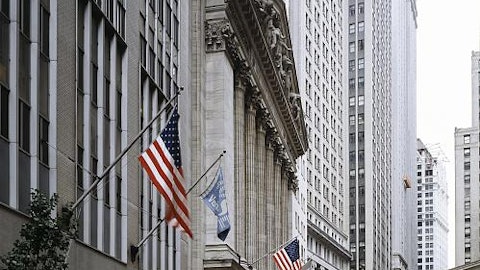For the contrarian investor out there, it is always tempting to invest in downtrodden markets. Many times buying into an equity market that has been out of favor can be a profitable investment strategy. However, this type of strategy takes a lot of patience and time because picking the bottom in any market is extremely difficult. Cheap stocks can always get cheaper. A stock market that is off 75% from a recent high may seem like a screaming buy. But is it actually a screaming buy if that same market is still, amazingly, up over 300% over the past 13 years? Aren’t there plausible scenarios where this market could halve from current levels, but that would still mean it is 200% higher over the past 13 years? This is the quandary facing investors who want Brazilian exposure.
In USD terms, MSCI Brazil is now back to levels last seen in 2005. However, as we stated above, it is still 300% higher than the 2002 low even as it is 75% off the 2008 high. So is now an interesting time to invest in Brazil? While it feels like it can’t get worse, we believe investors shouldn’t try to be a hero in this market.
The Brazilian economy is in shambles. Exports are in a free fall down 24% year-over-year. Industrial production is declining at the fastest year-over-year rate since 2009 and has had a negative year-over-year growth rate for 16 months. The unemployment rate has spiked to a five-year high while retail sales are declining at a pace last seen in 2003. Finally, even with excess capacity in the economy increasing and consumption slowing, Brazil is combating inflation as the CPI increased at 9.5% year-over-year rate in August. With this type of economic back drop its fairly easy to understand the pressure that Brazilian stocks have been under. What is harder to understand is how valuations have stayed so high.





No matter which valuation level you look at, Brazil still isn’t cheap. The median price to cash flow level for the MSCI Brazil Index is still 8.58x. This is nearly 3x the trough level during the financial crisis. The median price to earnings ratio has fallen much more than price to cash flow, but it to remains well above 2008 lows. It currently stands at 13.84x which is only slightly below the average level since 2007. Where valuations are starting to look intriguing at least is when we look at median price to sales and median price to book ratios. The median prices to sales has dropped to just 1.11x which is the lowest level since 2009. The median price to book is at 1.59x which is on the low end of the last couple of years but still higher than in 2012 and 2008-2009. Overall, valuation levels still aren’t at levels to make it worthwhile for investors to take the plunge.
Given the economic backdrop, the outlook for Brazilian stocks remains surprisingly optimistic as analysts’ earnings expectations still seem out of step with the current situation. Over the past decade, Brazilian stocks have increased EPS by 12% annually. Currently, consensus EPS estimates for this year are very negative at -25.8%. However, analysts expect Brazil to be able to make up for this growth in the following three years by averaging a robust 20.3% growth rate from FY2-FY4. This seems like an incredibly high hurdle for Brazil to leap over even as these growth expectations start from a depressed level after this year.
Finally, from a relative technical perspective the iShares MSCI Brazil Index (ETF) (NYSEARCA:EWZ) remains firmly in a down trend relative to the MSCI All-Country Index. This ETF looks like it is years away from forming a base relative to the global equity market let alone beginning to outperform. It recently broke down to a new four-year relative low.
All in all, given the poor economic picture, valuation levels that aren’t a screaming buy, optimistic analyst expectations for the future, and a very negative technical set-up, investors should be better off allocating their scarce investment capital to more productive equity markets around the globe.
This article was written by Eric Bush, CFA and was originally published here.
Disclosure: None













